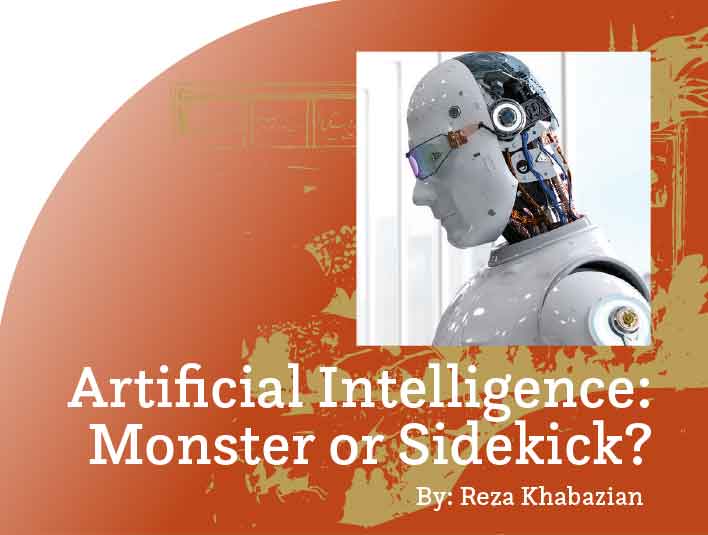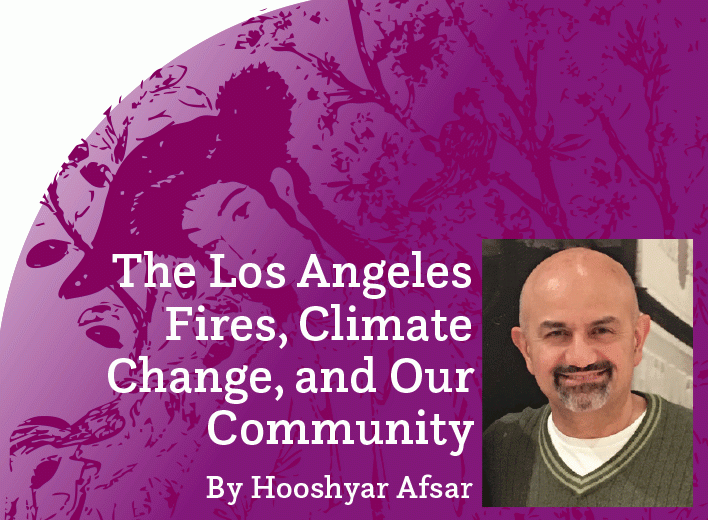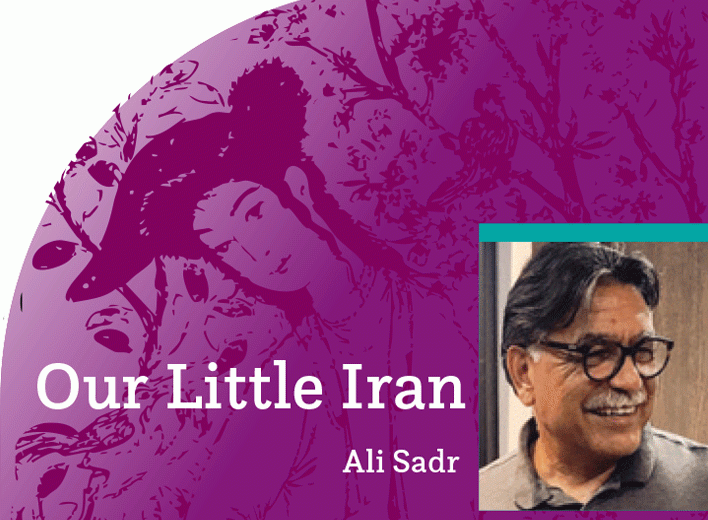Artificial Intelligence: Monster or Sidekick?
By: Reza Khabazian
Artificial Intelligence: Monster or Sidekick?
By: Reza Khabazian
Over the summer, in the midst of the Euro Soccer tournaments, I rushed home to watch the final soccer game between England and Spain. After spending a few minutes unsuccessfully searching to find the right channel, I ended up watching the game on YouTube.

To my utmost surprise, I noticed that Artificial Intelligence (AI) was being used as the only means for broadcasting the entire event. The part that deeply saddened me was to see the images of the athletes on the screen, which more closely resembled robots rather than their true images.
The questions that came to my mind were:
—“What are we doing to ourselves?
—“How far are we willing to let this new monster invade our hearts and minds?”
—“Have we realized, from the time that AI was introduced to our daily lives, how drastically we have lost our abilities to think, to write a simple email, to spell, and to express our true feelings?”
—“What is going to happen 10 or 15 years from now?”
The more I was in search of finding someone to blame, the more I pointed my finger back toward myself. From the time I eagerly became a member of Facebook and started revealing my personal thoughts by posting, clicking on the “Like” button, and leaving my comments to the time that I stopped going to stores to purchase goods of my choice, ordering even my daily grocery needs online, I became an important part of creating this monster. Now, the monster that I helped to create has evolved to a degree that even the experience of watching a soccer match is an opportunity to obscure my memory of a human face. It is creating a robotic image of an athlete to convince me to accept the future image of a human being, and that is very dangerous. If we continue accepting the invasion of AI without taking bold measures, we all are doomed to become robots ourselves.
What is wrong with trying to prepare our own resume instead of letting AI write it for us?
What is wrong with going to a shopping mall and looking for a dress or shoes rather than letting Amazon choose for us?
What is wrong with writing a letter to our loved ones and expressing our own true feelings rather than hiring AI to impress our friends and relatives with sentences that are not coming from the bottom of our own hearts?
What is wrong with picking up the phone and calling our friends to let them know that we are thinking about them rather than pushing a “like button” on their Facebook post?
Don’t we believe that expressing our political, social, and religious beliefs on social media is leading media corporations to decide what is best for us rather than ourselves?
Do we want companies to choose a shirt or shoes or a pair of pants that they have produced in masses, forcing us to consume what they like rather than what we like to wear?
Do we really want others to choose whom to vote for as president or senator or a council member rather than spending time listening to candidates’ plans and forecasts in the social and political arena?
I understand how busy our lives are, how many problems are on our hands to resolve, how precious our time is, how hard it is to make ends meet, but—at the end of the day—we are humans and we are entitled to preserve and promote our human qualities.
Having those thoughts in mind, it happened that I had to take a trip to Los Angeles to visit my daughter, who has an executive position at Amazon. To hear her thoughts on this subject, I shared my thoughts about AI with her. To my surprise, while she agreed with my concerns in general, she was not as pessimistic as I was. She, as a new generation who is very much involved with the new technology, explained how today’s younger generation are dealing with this subject by looking back to the lifestyle of the ’80s and ’90s while they understand and use the positive powers of AI. They prefer flip phones in fashion instead of new 5G phones, wear baggy clothes, pay attention to the off fashion colors and styles, turn their phones off in their own gatherings, call their parents to see how they are doing, visit their elderly family members to learn from their thoughts and experiences, spend time learning about the history of their own country of origin—all positive phenomenon that should reduce my worries. According to her, all this information can be achieved by the power of the same technology that I was regarding as Monster.
At the end of our conversation, she managed to convince me that the balance will eventually come into play and enable us to use the advantages of the new technology while staying away from their disadvantages if, and only if, we as users of the technology are determined to preserve and promote the valuable aspects of our humanity.


















